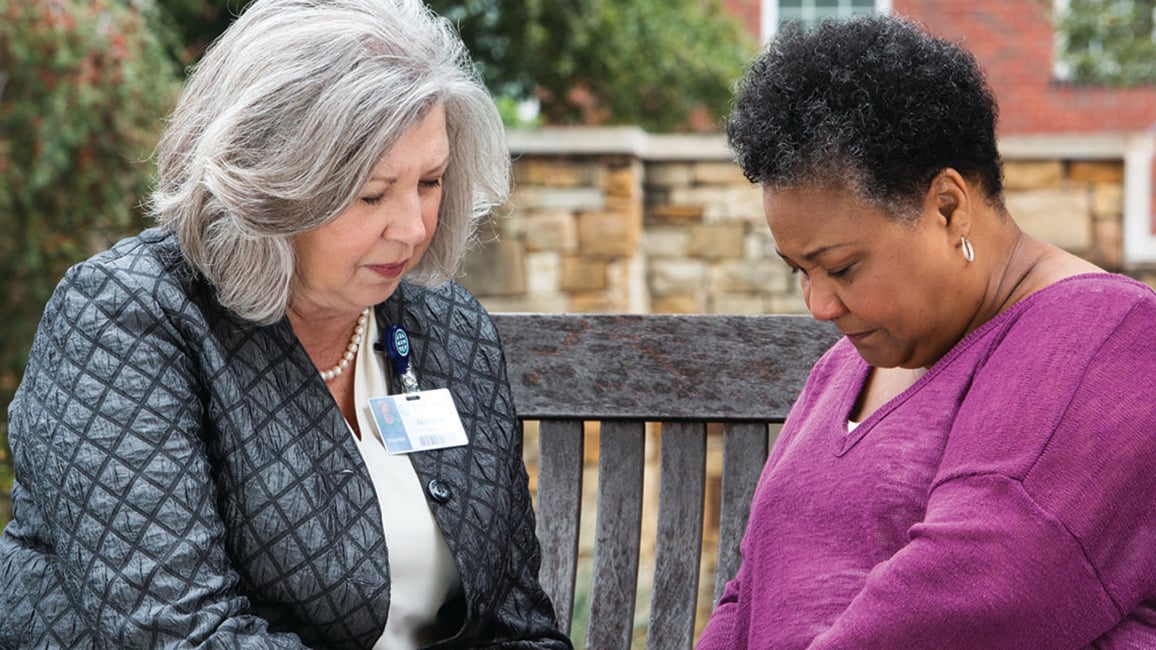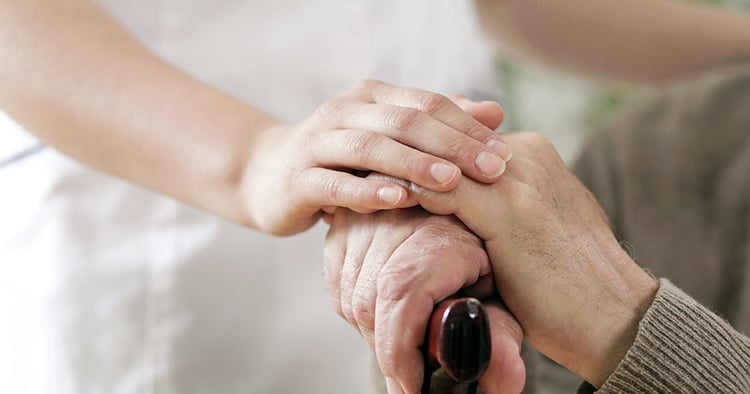Faith Community Nurses: Interpreters For The Journey Toward Health
A nurse will establish a faithful approach toward health and wellness to help NTC clergy navigate their personal journeys
Debbie Seider is the manager of Faith Community Nursing for Methodist Health System.
Have you ever travelled to another country where you did not know the language – or did not know it very well? As someone who is normally adept at communicating and connecting with others, you may have been frustrated when navigating your travels, asking for directions, ordering food or using the local currency. You knew you were generally capable of these tasks, but the language barrier added a layer of stress and uncertainty to even basic activities.
 However, what would have happened if you had had an interpreter with you?
However, what would have happened if you had had an interpreter with you?
A skilled interpreter understands the intersection of languages and cultures to help you navigate your journey. An expert interpreter anticipates both common and uncommon language and cultural pitfalls. She coaches you to watch for hazards and avoid possible missteps. When you stumble, he helps you regain your footing and get back on track. You build awareness and confidence for your next journey into unfamiliar territory.
Soon, a Faith Community Nurse will be available as an “interpreter” to North Texas Conference clergy. The nurse will intentionally establish a faithful approach toward health and wellness to help clergy navigate their personal journeys toward health.
Rev. Granger Westberg (1913-1999) was a Lutheran pastor, chaplain and pioneer in whole-person care. He piloted models of health care delivery in churches, local schools and other non-traditional sites in the 70s and 80s. These models intentionally focused on the interrelatedness of body, mind and spirit. Over time, he observed that registered nurses were uniquely prepared to coordinate and deliver whole-person care.
Westberg noted that the nurse was the bridge between all of the disciplines. She had a foot in each world: medicine, social work, community needs and resources, religion and the lives of patients and families. She could speak the language of the physician, the social worker, the pastor and those receiving care. She could interpret concerns in one dimension of life and communicate how it affected other dimensions. The nurse recognized that physical illness (cancer diagnosis) could lead to spiritual distress (why is God punishing me?). Likewise, spiritual struggles (I’ll never forgive my brother!) could manifest as physical concerns (high blood pressure). Patients would often share information with the nurse that they were too embarrassed or ashamed to tell their doctor or pastor. The nurse could connect the patient, physician and clergy to collaborate toward better holistic health.
Westberg coined the term “Parish Nursing” to describe this role.
 Western Christian tradition traces the origins of nursing to the role of women deacons and wealthy first-century Roman matrons who opened their homes to care for the sick and the poor. The tradition continued during the Middle Ages as monasteries provided care and respite along the crusade routes.
Western Christian tradition traces the origins of nursing to the role of women deacons and wealthy first-century Roman matrons who opened their homes to care for the sick and the poor. The tradition continued during the Middle Ages as monasteries provided care and respite along the crusade routes.
The Renaissance brought scientific theory and practice into Western culture. Philosophies such as Rene Descartes’ theory of dualism (separation of mind and body) greatly fractured our belief, awareness and attention to the wholeness of our lives and our health. This fracture continues today.
Post Renaissance, Catholic convents and other Christian nursing schools in Europe prepared young women to fulfill their calling to care for the sick. Florence Nightingale advanced the profession of nursing with attention to scientific theory and evidence based practice, blending the theories of nursing, theology, and science.
Today, the newest, most inclusive term – “Faith Community Nursing” – is defined as the “specialized practice of professional nursing that focuses on the intentional care of the spirit as well, as the promotion of whole-person health, and the prevention or minimization of illness within the context of a faith community and the wider community.” – Faith Community Nursing: Scope & Standards of Practice, 2017.
Intentional care of the spirit is the defining aspect of Faith Community Nursing. When we steward our health, we are better able to live out our purposes and fulfill our missions. In turn, we positively influence the health and wellness of our congregations and larger communities.
The Faith Community Nurse coming soon to serve the clergy of the North Texas Conference will be a gift on our journeys toward health.
To God be the glory!
In October 2023, the Golden Cross Division Board of Methodist Health System Foundation awarded the North Texas Conference and Methodist Health System’s Faith Community Nursing program a grant of $140,000 to support new initiative designed to improve clergy health and wellness. Read
Published: Thursday, January 25, 2024
